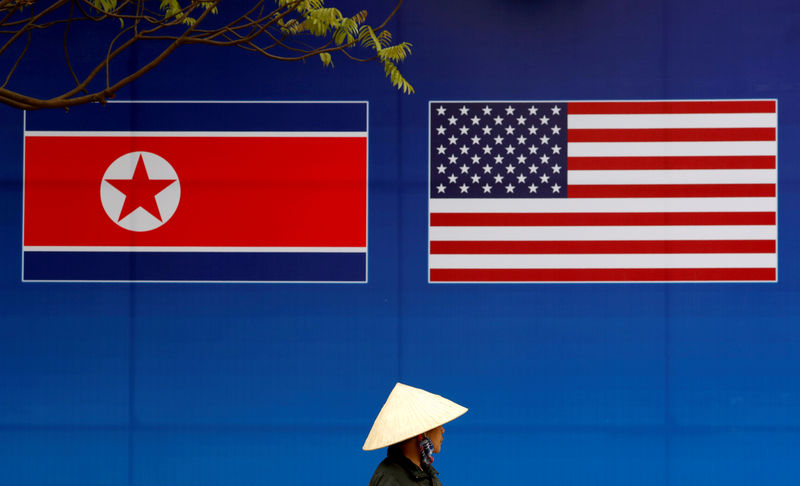By Jeff Mason and David Lawder
WASHINGTON (Reuters) - U.S. Secretary of State Mike Pompeo said on Sunday that he hopes a letter sent by President Donald Trump to North Korean leader Kim Jong Un can pave the way for new talks aimed at ending North Korea's nuclear program.
Pompeo, who confirmed Trump's letter to Kim before departing Washington on a trip to the Middle East, said that the United States was ready to resume talks with North Korea immediately.
"I'm hopeful that this will provide a good foundation for us to begin ... these important discussions with the North Koreans," Pompeo told reporters at Joint Base Andrews.
Earlier North Korea's state-run news agency KCNA said Kim had described the letter as being "of excellent content" but did not disclose any details about Trump's message.
The KCNA report said Kim "would seriously contemplate the interesting content."
U.S.-North Korea talks stalled after a failed summit in February between Trump and the North Korean leader in Hanoi, Vietnam.
A U.S. official said on Wednesday the United States had no pre-conditions for new talks, but that progress would require meaningful and verifiable North Korean steps to abandon its nuclear weapons program.
Pompeo did not discuss the contents of Trump's letter, but said the United States has been working to lay foundations for discussions since the Hanoi summit abruptly ended by Trump. He added: "I think we're in a better place."
Asked if working-level discussions between the countries would begin soon, Pompeo said: "I think the remarks you saw out of North Korea this morning suggest that may well be a very good possibility. We're ready to go, we're literally prepared to go at a moment's notice if the North Koreans indicate that they're prepared for those discussions."
Trump leaves for Asia later this week for the G20 summit in Osaka, Japan, and meetings with South Korean President Moon Jae-in Seoul.

Pompeo also will join Trump at the G20 summit and accompany the president to Seoul, but said he will first travel to Saudi Arabia and the United Arab Emirates to consult with the U.S. allies on growing tensions with Iran.